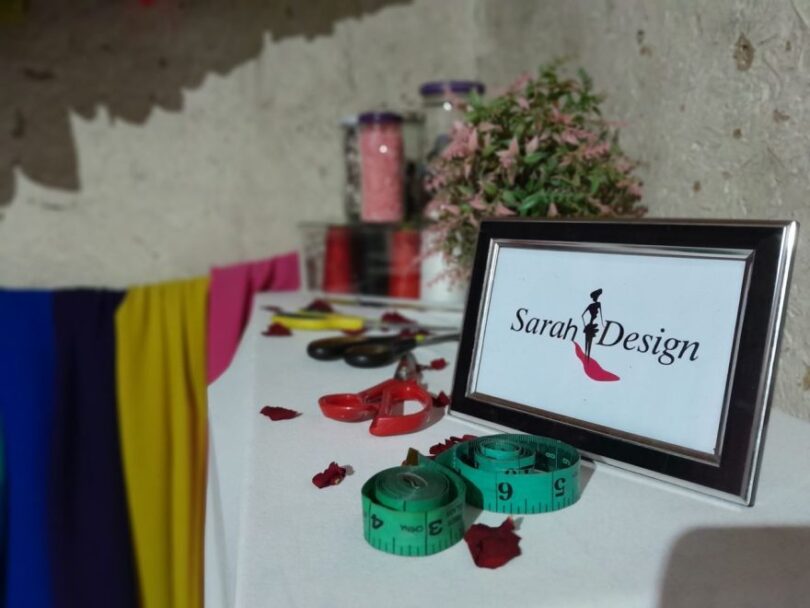Zahra Rashidi
Sarah is the name of a young girl who lives in one of the impoverished neighbourhoods of Kabul. She graduated in economics and had been nurturing her dream of becoming a film director before the return of the Taliban.
However, the constraints and limitations of the Taliban regime have confined her to the four walls. If there’s electricity, she sews clothes from early morning till evening, supporting her family with the earnings.
Sarah says her father retired two years ago, and there is no one else to financially support their family. Every day, she starts her work behind the sewing machine, with the awareness that if the Taliban had not come, she would have been somewhere else, and her life would not have been reduced to finding bread out of necessity.
She has dedicated a small room in their house to sewing, and Sarah is always either waiting for customers, although orders are scarce at this time of the year, or sitting behind the sewing machine, praying for the electricity to come because she does her work with an electric sewing machine.
At the age of 24, she has come to accept the reality that the realization of her dreams (continuing education, studying, and directing) is not possible anytime soon. By accepting this reality, she has taken on the responsibility of her six-member family and strives in this regard.
According to Sarah, for now, “the only hope I have is my sewing machine because that’s the only way I work and use the money I earn for my family. But if there’s no electricity – which is usually the case – I am even deprived of this modest dream.”
Sarah says that due to frequent power outages, 80% of her work is delayed. If there’s electricity, she can sew five different types of clothes daily, but without electricity, she can only sew two types, and that too during the night.
She describes the challenges of sewing at night, saying, “Sewing at night is difficult because on one hand, I feel sleepy, and on the other hand, working with a sewing machine can be risky with even the slightest carelessness. The customer’s clothes could get damaged, or I could accidentally hurt my finger with the needle.”
The clothes Sarah sews are diverse, and she has regular customers. She charges between 300 to 2000 Afghanis for sewing each piece, depending on the design and fabric.
Sarah is especially known for her Punjabi-style clothing, for which she charges 300 Afghanis per piece. She inherited the skill of sewing from her mother, and the sewing machine she uses to support her family is a gift from her sister. Sarah recalls, “My first job was making a six-piece dress. My sister wasn’t feeling well and asked me to sew a customer’s six-piece dress.”
Now that Sarah works from home and has designated a room for herself, her father doesn’t allow her to work outside the home or have a shop. However, she acknowledges that having a shop could attract more customers and bring greater benefits.
Most of her customers are relatives and friends, as she doesn’t have much visibility in the area due to working from home.
Sarah completed her education in economics at Kabul University and says, “I don’t know how realistic my dreams were, but I wanted to become a film director.”
However, for now, she doesn’t think about pursuing a career in directing or continuing her education. Her happiness lies in the fact that as the New Year approaches, she anticipates an increase in orders, and her income from these orders will also rise. She explains, “I can’t celebrate occasions like Eid, New Year, and similar festivities because I often work more on those nights than on regular days.”
She currently works alone, with her younger sister rarely accompanying her. Sarah is on the lookout for ways to expand her business and teach apprentices.
In Afghanistan, Sarah is not alone; thousands of other girls have buried their dreams due to significant limitations on women. Some are forced into activities contrary to their desires, while others, like Sarah, find solace in the hum of the sewing machine during dark days.
Khaama Press







